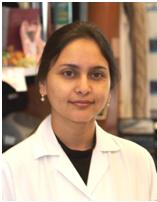The John Fetting Fund for Breast Cancer Prevention

The John Fetting Fund for Breast Cancer Prevention will enable us to fund the most promising research in breast cancer prevention. The Fetting Fund supports basic and translational breast cancer prevention research performed by or under the direct supervision of the faculty of the Johns Hopkins Breast Cancer Program. Donations to the Fetting Fund are divided equally between an endowment that generates income for future research and direct support for current research. The Fund provides seed money for studies which position investigators to get larger grants. The Fund is overseen by an Advisory Committee which defines its mission, works to increase the endowment, decides what research to support, and communicates effectively and consistently with the Fund’s donors. The current priority of the Fund is to discover changes in breast tissue DNA that identify women at-risk for breast cancer and its consequences. By improving our understanding of who is at risk, we can focus our efforts on those at risk and reassure those who are not.
Make your gift to support breast cancer prevention. Please select the “Fetting Fund for Breast Cancer Prevention”
Letter to My Daughters about Breast Cancer
Breast cancer survivor, Leslie Ries, writes a letter to her daughters describing her journey with breast cancer and her efforts to fund breast cancer prevention at Johns Hopkins Kimmel Cancer Center.
Watch the videoUpdates in breast cancer research by Johns Hopkins Experts supported by the John Fetting Fund for Breast Cancer Prevention.
Experimental Blood Tests Spots Recurrent Breast Cancers and Monitors Response to Treatment
Johns Hopkins Kimmel Cancer Center investigators report they have designed a blood test that accurately detects the presence of advanced breast cancer and also holds promise for precisely monitoring response to cancer treatment. Read more.
Meet our Fetting Fund Researchers

Kala Visvanathan M.D., M.H.S
is leading a multispecialty team that is working to identify genetic changes suggestive of cancer that could be used to monitor normal breast tissue for early signs of a developing cancer. This study involves women who are undergoing mastectomy for breast cancer. If successful, it will provide a much-needed method to identify precancerous changes in breast tissue that will allow us to recognize women who have a higher chance of developing breast cancer and those who have a lower chance when factoring in established risk factors. Most importantly, this research could one day provide us the opportunity to intervene early to prevent the cancer.

Dipali Sharma, Ph.D.
is testing honokiol, a natural chemical extracted from the bark of the Magnolia tree. In mouse models, the natural extract demonstrated the ability to prevent some breast cancers. Dr. Sharma’s research uses honokiol in mouse and cell line models to explore what mechanisms are affected by this substance. This study is the first study to investigate the breast cancer prevention potential of honokiol. It is an initial step in moving novel preventative treatments to clinical studies in women and hopefully finding a way to prevent breast cancer.


